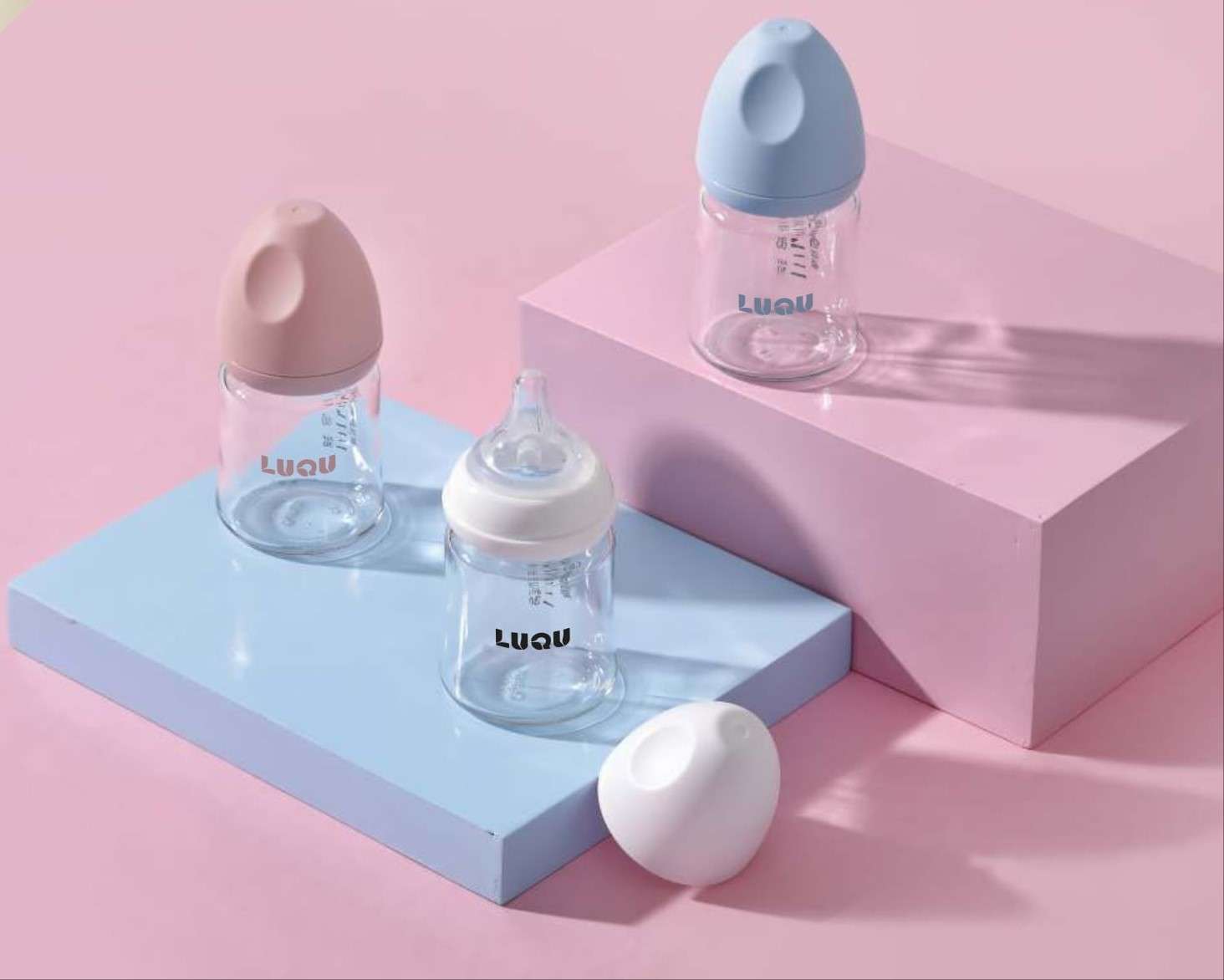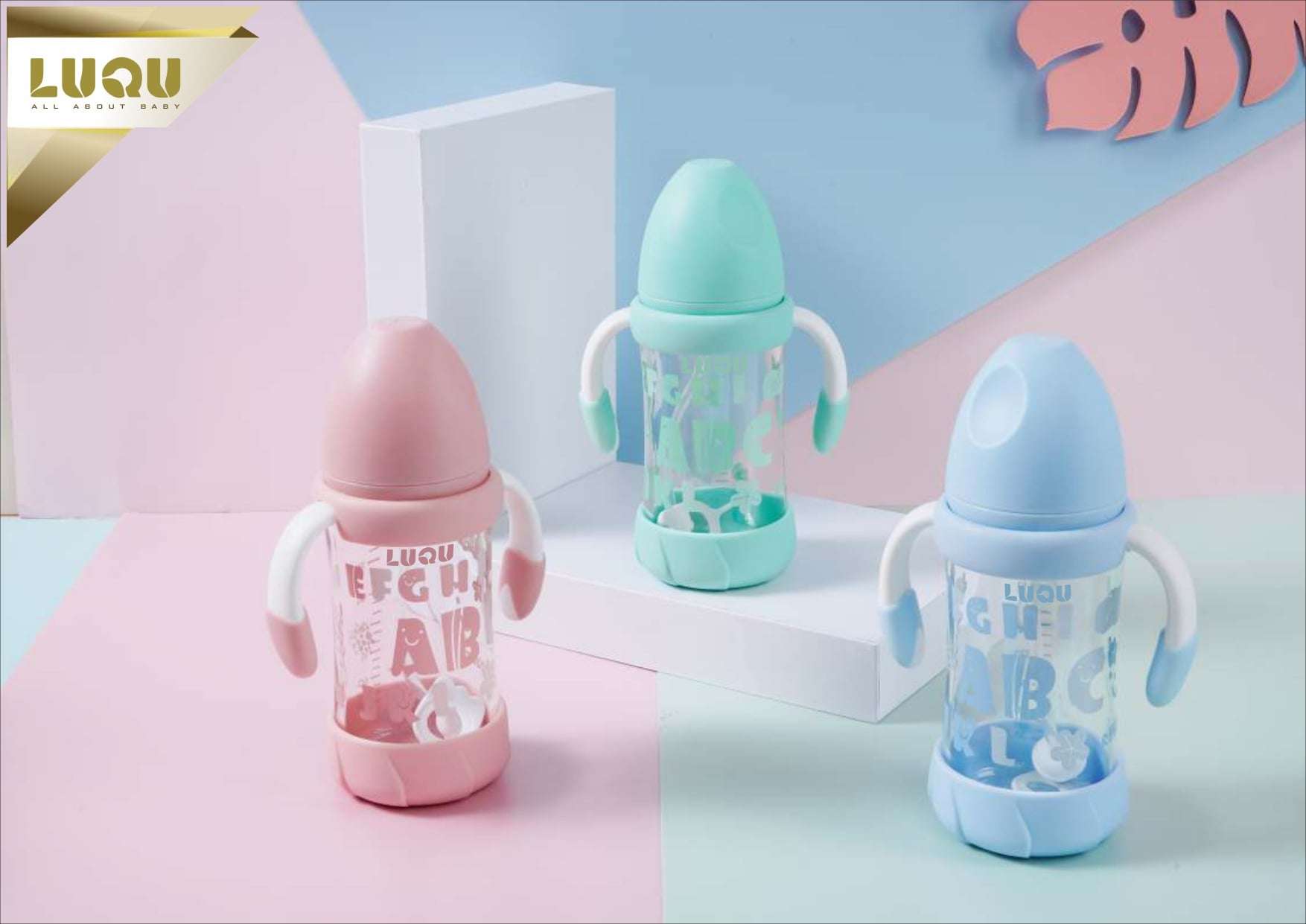Having a colicky baby can be exhausting, frustrating and upsetting. The non-stop crying would test even a saint and cause a lot of stress for new parents.
Luckily, there are products that can help you and baby get through this tricky period and there’s lots of trusted help and guidance available, too. The main thing to remember is that there is nothing you are doing wrong; it’s just one of those things that many young babies go through. If you’re worried about colic and want to know if you should get anti-colic bottles for your baby, and what else could help, then we have your questions covered…
What is colic?
According to the AAFP, colic is when a baby cries a lot, but there’s no obvious cause. If you’re baby cries for more than three hours a day, three days a week for at least three weeks, then they may have colic. It’s very common and it can peak when your infant is around six weeks old.
What causes colic?
Funnily enough, there’s no obvious cause and that’s why it can be baffling to so many parents. Some people think it’s because babies find it harder to digest food when they’re young and others think it is due to problems with food allergies, such as a cow’s milk allergy.
How do I know my baby has colic?
It may be colic if:
- Your baby is crying regularly for no obvious reason
- It’s difficult to soothe or settle them
- They clench their fists
- They go red in the face
- They bring their knees up to their tummy or arch their back
- Their tummy rumbles or they’re very gassy
- It can start when a baby is a few weeks old and usually stops by the time they are six months old.
You will not usually need to see a doctor if they have colic, but you can speak with your pediatrician for advice and support. Always remember – if you’re worried, nothing seems to be working, or baby is older than four months and still seems to have symptoms of colic, it’s best to call your doctor and see a physician.
What are the remedies for colic?
There are plenty of products that you can try, including:
- Anti-colic bottles
- Special baby milk formula
- Infant drops – to help to release trapped gas
- Gripe water – an over-the-counter liquid supplement
- And there are a number of recommendations for soothing your baby, too, such as:
- Cuddling your baby when they’re crying a lot
- Sitting with your baby upright during feeding to stop them from swallowing air
- Burping your baby after feeds
- Gently rocking your baby over your shoulder
- Softly rocking your baby in their bassinet or crib, or pushing them in their stroller
- Bathing your baby in a warm bath
- Having some gentle white noise like the radio or TV in the background to distract them
Do antic-colic bottles help?
Anti-colic bottles are specially designed to reduce the amount of air that the baby takes in when feeding.
Many baby bottles come with different designs and features specifically designed to help relieve gas and colic symptoms.
A bottle labeled as anti-colic is designed to reduce air swallowed during feeds, lessen gas bubbles in the stomach, and slow down food intake. This has the potential to reduce any colicky crying related to gas and overfeeding.
Anti-colic bottles may have:
Different nipple flow options to help milk flow at the right speed
Bottle nipples designed to lessen the chance of air in the tip
Valve systems
An angled shape to help keep baby more upright while feeding
Optional vent systems to keep air from traveling through the milk
Our best selling Comfort Bottles features a 360° weighted straw that follows the liquid to reduce air intake, preventing painful colic and gas and to provide a continuous, contented feed.

Do anti-colic bottles also help with reflux?
Reflux is different than colic, but because some of the symptoms of colic and reflux are similar, such as being unsettled during feeding, crying and not calming down, they can sometimes be grouped together.
Reflux is when a baby brings up milk, or is sick, during or shortly after feeding. Silent reflux is when babies may have signs of reflux, but will not bring up milk or be sick.
However, anti-colic bottles can also help with reflux because they reduce the risk of the baby swallowing air which can get trapped in their stomach and cause them to feel uncomfortable and full.
This is why our LUQU Baby Bottles include Anti-Reflux Nipples, too.
Can you use anti-colic bottles even if your baby doesn’t have colic?
Yes. Anyone can use an anti-colic bottle. They are designed to reduce the amount of air a baby takes in while feeding, so they can help the baby have less gas.
They will be most beneficial to babies who are upset after feeds and seem to have a lot of gas, but there’s no harm in using them for a baby who doesn’t have these issues.
It’s definitely worth having an anti-colic bottle on hand in case you need it!
How many different bottles do I need?
Depending on how often you’re planning on bottle feeding your baby, you may need up to six bottles and nipples to start off with.
We’d recommend having a mixture of basic bottles, anti-colic bottles and ready to feed bottles to see which ones work best for your baby.
View our range of baby bottles here.
If you plan to use bottles occasionally, or once a day, then it might make sense to buy just one bottle and nipple.
You can also experiment with different nipple shapes, to see if your baby has a preference.
Sometimes you can try all of these things, and the baby will still cry.
But don’t despair, as they will eventually grow out of it.
Make sure you lean on your support network if you’re struggling to cope during this phase.












